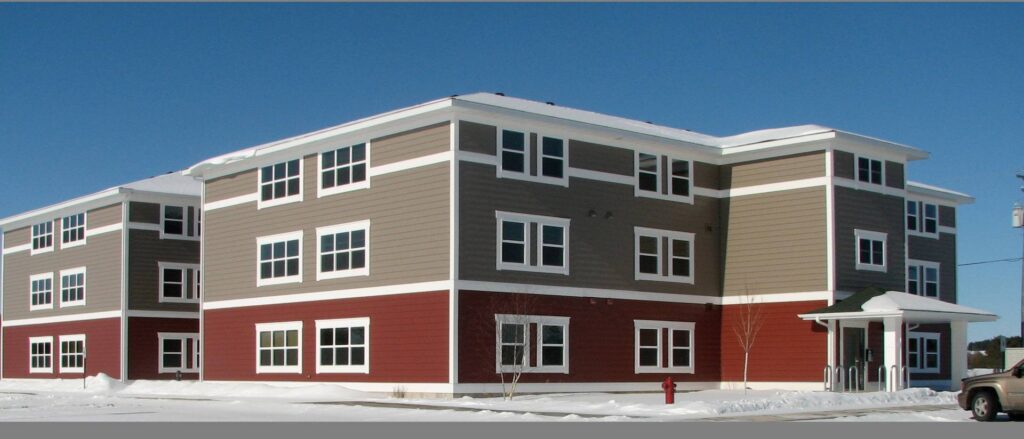
Glenwood Commons, a new housing site in Rice Lake funded through a Wisconsin Economic Development Corp. grant, provides housing to UW-Eau Claire students completing student teaching and internships.
Maia Reissner wanted a career in education ever since the third grade.
“I had a fantastic teacher who showed me hands-on learning and the social-emotional aspect of education,” says Reissner, a 2023 elementary-middle education graduate of the University of Wisconsin-Eau Claire.
She chose UW-Eau Claire because of the program’s historic reputation. However, the Rib Lake native ended up benefiting most from a brand-new initiative.
Going into her student teaching semester, Reissner researched placement opportunities and learned about funding through the Wisconsin Economic Development Corp. Workforce Innovation Grant UW-Eau Claire received in 2021.
“We were able to be placed in a district where housing was available to us. I applied for the scholarship, and it was a very easy process,” Reissner says.
She student taught at two schools in the Rice Lake Area School District, thanks to a new grant-funded apartment building, Glenwood Commons.
The living facility is one of UW-Eau Claire’s new WEDC-aided interprofessional practice network sites. The location provides opportunities in rural communities for student teaching and internship experiences. The housing offers education and social work students the chance to live and work together. It also gives local organizations help at no direct financial cost.
Michael Schmitz, a 2023 elementary-middle education graduate, comes from a family of educators. A Brooklyn Park, Minnesota, native, he wanted to go into the same profession so he could make an impact on the community.
He also was able to take advantage of the scholarship during his time student teaching. Schmitz found tremendous value in his living arrangement.
“The housing was free, and it was in a very convenient location. If I had not been placed here, I would have needed a job to keep up with rent, food and gas,” Schmitz says.
Reissner was incredibly pleased when she moved into the grant-funded housing.
“The living room and kitchen were already furnished, and the apartment was close the schools, so I only had a five-minute drive to work,” Reissner says. “This grant was my first option. My only other option would have been to move home with my parents and student teach in a district near them to afford everyday needs. Having free housing truly lifted a lot of stress during this time.”
During their student teaching, students routinely work a 40-plus hour work week at their school placement without pay. Their responsibilities include preparing and teaching lessons, working with small groups and even assisting with after-school activities.
“If I hadn’t received this grant, I would not have been able to get as invested in the schools,” Reissner says. “As a college student with no income, I was very nervous about this semester. I am beyond grateful for this opportunity and this experience.”
Schmitz says the most rewarding aspect was working with and supporting his students. “It was nice to be part of a town and community during the time I spent at the schools, and I got to really know the area.”
Written by Andrew Salvaterra
Link to original story: https://www.uwec.edu/news/news/wedc-grant-helps-students-live-and-teach-in-rural-communities-5932/
